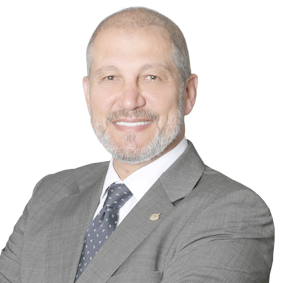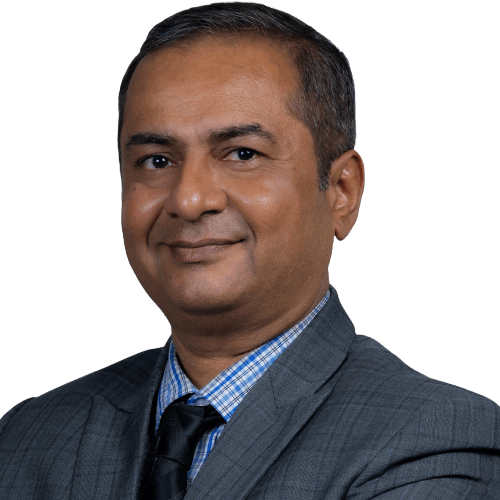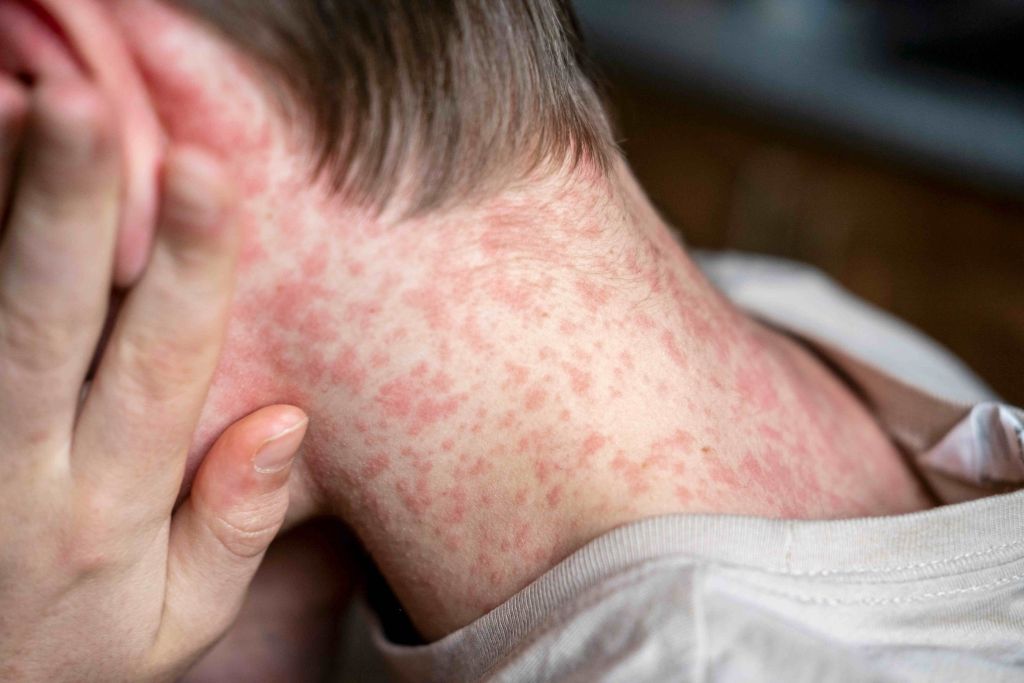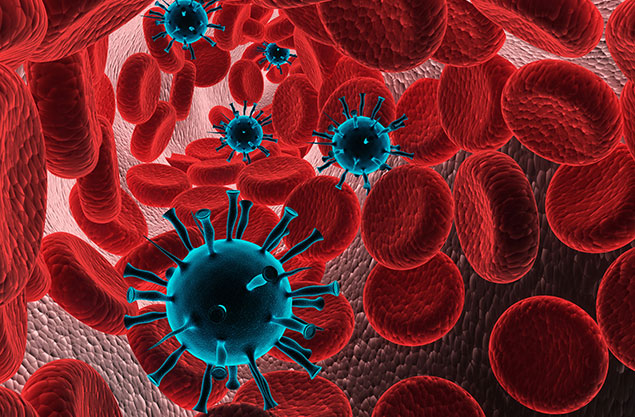Liver Disease - Symptoms, Types, Causes, Treatment & More
Written By: Dr. Emad Fayyad
Updated On:December 22, 2023
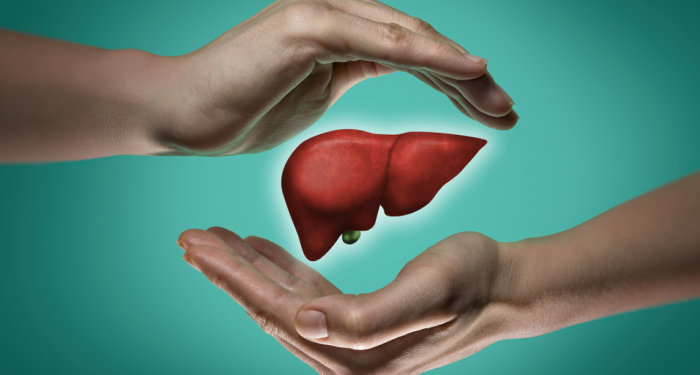
What is Liver Disease?
Liver disease refers to any condition affecting the liver and its functions. There are more than 100 different types of liver disease. The liver performs essential, life-sustaining tasks related to metabolism, energy storage, and detoxification of waste. It helps digest food, convert it to energy, and store energy until needed. It also assists in filtering the bloodstream of toxic substances.
While you can't live without a liver completely, you can live with only part of one. Many people can function with just under half a liver. The liver can also grow back to full size within a matter of months. Many conditions affect the liver. Listed below is a small, common, selection of conditions encompassed by the broad term, liver disease.
Types of Liver Disease
Liver disease comes in many forms. While liver disease symptoms do not manifest in early stages of the condition, all types of liver disease have treatments available. The disease can be caused by viral infection (hepatitis), by lifestyle factors such as alcohol consumption, genetics and autoimmune conditions, characterised by the immune system attacking healthy cells. The below list describes the most common forms of liver disease.
Hepatitis
Hepatitis, a viral infection in the liver, causes inflammation and liver damage. There are five types of hepatitis:
- Hepatitis A: Spread via contact with contaminated food or water
- Hepatitis B : Spread via bodily fluids
- Hepatitis C : Spread via contact with Hepatitis C contaminated blood
- Hepatitis D : Develops in those with Hepatitis B
- Hepatitis E : Caused by drinking contaminated water
Fatty Liver Disease
This condition is characterised by fat build-up in the liver. There are two types of fatty liver disease:
- Alcoholic fatty liver disease, caused by heavy alcohol consumption
- Non-alcoholic fatty liver disease, caused by other factors medical professionals are trying to ascertain
Autoimmune Conditions
If the immune system mistakenly attacks healthy cells, this is known as an Autoimmune condition. Several autoimmune conditions attack cells and the liver, including:
- Autoimmune hepatitis: Causes your immune system to attack your liver, resulting in inflammation
- Primary Biliary Cirrhosis (PBC): Results from damage to the bile ducts in the liver, causing a build-up of bile, leading to eventual cirrhosis and liver failure
- Primary Sclerosing Cholangitis: This condition causes gradual damage to bile ducts, eventually causing bile to build up in your liver, leading to cirrhosis or liver failure
Genetic Conditions
Several genetic conditions, inherited from your parents, can affect the liver:
- Hemochromatosis: Causes the body to store more iron than it needs, which can lead to liver damage
- Wilson’s disease: Causes the liver to absorb copper instead of releasing it into the bile ducts, damaging the liver
- Alpha-1 antitrypsin (AT) deficiency: This protein helps prevent enzyme breakdowns throughout the body. A lack of AT can cause liver disease
Liver Cancer
Liver cancers are those which first develop in your liver. If cancer starts elsewhere but spreads to the liver, it’s known as secondary liver cancer. Complications of other liver diseases, especially those left untreated, may contribute to liver cancer.
Liver Cirrhosis
Cirrhosis refers to liver scarring as a result of liver diseases and other causes of liver damage, such as:
- Alcohol use disorder
- Cystic fibrosis
- Syphilis
The liver can regenerate in response to damage, but this usually results in the development of scar tissue. The more scar tissue, the harder it is for the liver to function. In early stages, cirrhosis is often treatable by addressing the underlying cause. If untreated, it can cause other complications and become life-threatening.
Liver Failure
When a significant degree of the liver is damaged, and it no longer functions correctly, this is described as chronic liver failure. It is generally a condition which occurs slowly. You may not display any symptoms in the early stages. But over time, noticeable liver disease symptoms emerge, including:
Acute liver failure happens suddenly, often in response to overdose or poisoning.
Causes of Liver Disease
The three leading causes of liver disease are:
- Obesity
- Undiagnosed hepatitis infection
- Alcohol abuse
There are numerous lifestyle factors that contribute to liver disease, including:
- Lifestyle
- Diet
- Exercise
- Genetics
- Pre-existing conditions
When to see a doctor to see a doctor for Liver Disease
Unfortunately, most of the signs and symptoms of the different types of liver disease are not apparent until the condition has taken a firm hold. The condition can be managed, and symptoms relieved through lifestyle changes and careful management. A very thorough series of blood tests will be conducted in order to ascertain a case of liver disease, and while the condition is uncomfortable and presents some challenges, it is a treatable condition, and many people with liver conditions continue to live fully productive, happy lives.
Call Medcare today to discuss your liver disease symptoms and help you with this condition.
Liver Disease Signs & Symptoms
Most liver diseases do not reveal symptoms during the early stages. Once symptoms of liver disease manifest, the liver is already damaged and scarred. This is known as cirrhosis. Depending on underlying causes, liver disease symptoms can vary. However, certain general symptoms may indicate liver disease.
Some signs and symptoms of liver disease include:
- Yellow skin and eyes, known as jaundice
- Dark urine
- Pale, bloody, or black stool
- Fatigue
- Swollen ankles, legs, or abdomen
- Nausea and vomiting
- Decreased appetite
- Decreased sex drive
- Itchy skin
- Easy bruising
Diagnosis of Liver Disease
To diagnose liver disease, blood tests known as liver function tests may be recommended. Blood tests are undertaken to look for specific liver problems or genetic conditions, and a range of other tests may be prescribed to examine the liver’s function, such as:
- Imaging tests
- Ultrasound scans
- CT scans, and
- MRI scans, all of which can show liver damage
Your Medcare healthcare team will ascertain the cause and extent of liver damage in order to guide treatment. You can expect a conversation regarding your health history and a thorough physical examination.
A doctor may then recommend:
- Blood tests
- Imaging tests - an ultrasound, CT scan or MRI test can show liver damage
- A biopsy - removing a liver tissue sample may help diagnose liver disease and reveal signs of liver damage.
Once diagnosed, an appropriate treatment regime will be recommended. This could include lifestyle changes, exercise and medication. In cases of liver failure, liver transplant is an option.
If you’re concerned you might have liver disease, make an appointment with Medcare to narrow down what’s causing your liver disease symptoms.
Liver Disease Treatment
Liver disease treatment depends on the diagnosis. Some problems can be managed by lifestyle modifications, such as no longer consuming alcohol or losing weight, as part of a medical program, including careful liver function monitoring. Other liver problems may be treated with medication or require surgery.
Treatment may ultimately require a liver transplant.
Liver dialysis
Liver dialysis allows the blood to be purified after liver failure. Dialysis performs the function of your liver, by removing blood from the body, pumping it through purifying filters and pumping it back into the body. Dialysis may only be required a few times, as the process restarts the damaged liver.
Medication for liver disease
Depending on the liver condition, medical treatment may be prescribed, such as:
- Antiviral drugs to treat hepatitis
- Steroids to reduce liver inflammation
- Blood pressure medication
- Antibiotics
- Medications to target specific liver disease symptoms, such as itchy skin
- Vitamins and supplements to boost liver health
Partial or complete liver removal may be recommended, but generally, a complete liver transplant is only performed when other options have failed.
Liver Disease surgery - liver transplant
A liver transplant, also called hepatic transplant, can help save your life when the liver stops functioning. It involves surgical removal of the entire diseased liver, which is replaced with all, or part, of a donor liver, from a living or deceased donor. Liver transplant is considered a last-resort measure for chronic (long-term) liver diseases and severe acute (sudden onset) liver diseases.
Your medical team will consider certain factors when determining if liver transplant is necessary. These include:
- Severity of the condition
- Other medical conditions you have
- Any history of tuberculosis and chronic infections
- Your overall physical condition and mental well-being
Risk Factors for Liver Disease
Many factors make developing liver disease more likely. One of the most well-known of these is heavy drinking – defined as more than eight drinks per week for women and more than 15 for men.
Other risk factors of liver disease include:
- Working in an environment with exposure to blood and other bodily fluids
- Diabetes or high cholesterol
- Family history of liver disease
- Being overweight
- Exposure to toxins or pesticides
- Taking certain supplements or herbs
- Mixing certain medications with alcohol
- Taking greater than recommended doses of certain medications
Liver Disease Complications
Complications of liver disease can vary, depending on the cause of the liver problems. Untreated liver disease may progress to liver failure, a life-threatening condition. Be mindful that liver disease symptoms are often not apparent until the damage is done, so it’s worth ensuring regular liver health check-ups.
Can liver disease cause high blood pressure?
A diseased liver can cause portal hypertension - high blood pressure in the portal vein - which supplies blood to the liver. When the liver becomes severely scarred (cirrhosis), it creates increased blood pressure around the intestines, a dangerous complication of liver disease. The blood must find a new way to return to the heart, which it does by using smaller blood vessels. These cannot carry the weight of blood, so get stretched and weakened. They are called varices.
When blood pressure reaches a certain level, the varice walls spilt and bleed, which leads to anaemia. Such split varices can be treated with endoscopy to locate them, then sealed to stem the bleeding.
Liver Disease Prevention
To help prevent liver disease in its many forms:
- Avoid drinking alcohol
- Maintain a healthy weight: Obesity can cause non-alcoholic fatty liver disease
- Get vaccinated: If you're at increased risk of, or already infected with, any form of hepatitis, talk to Medcare about getting hepatitis A and B vaccines
- Use medications sensibly: Take prescription and non-prescription drugs only when needed and only in recommended doses. Talk to Medcare before mixing herbal supplements or prescription or non-prescription drugs
- Avoid contact with blood and body fluids: Hepatitis viruses are spread by improper clean-up of blood or body fluids.
- Keep food safe: Wash your hands before food preparation or consumption.
- Take care with aerosol sprays: Use aerosols in a well-ventilated area, and wear a mask when spraying insecticides, fungicides, paint and other toxic chemicals.
- Protect your skin: If using insecticides or any other known toxic chemicals, wear gloves, long sleeves, a mask and a hat - so chemicals aren't absorbed through the skin.
Meet our doctors from the Gastroenterology department
